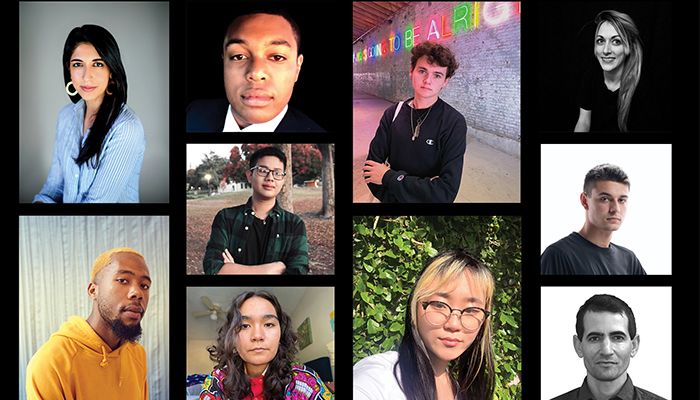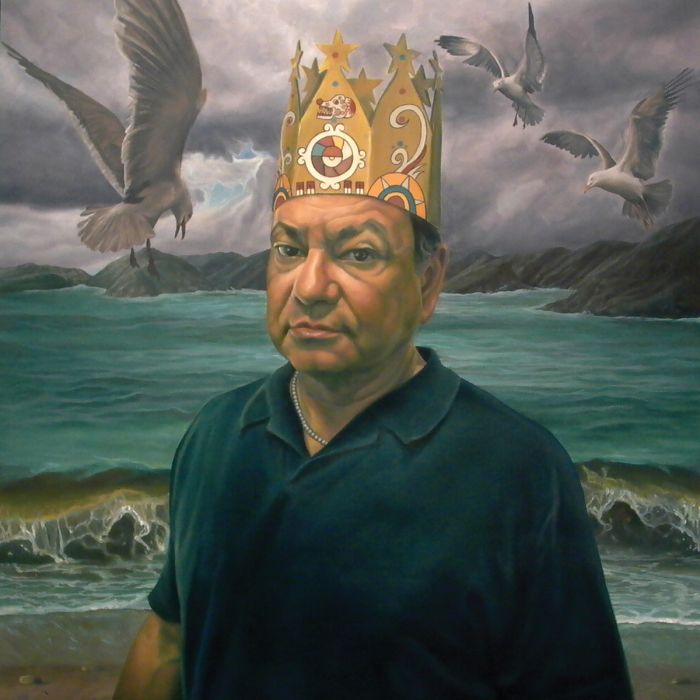How Otis College’s New DEIB Director Theresa Lucas Approaches Her Work
Dr. Theresa Lucas began her role as Otis College’s new Director of Diversity, Equity, Inclusion, and Belonging (DEIB) earlier this summer, joining Dr. Nick Negrete, the College’s inaugural senior diversity officer who is now the Vice President for Student Affairs and Campus Diversity & Inclusion.
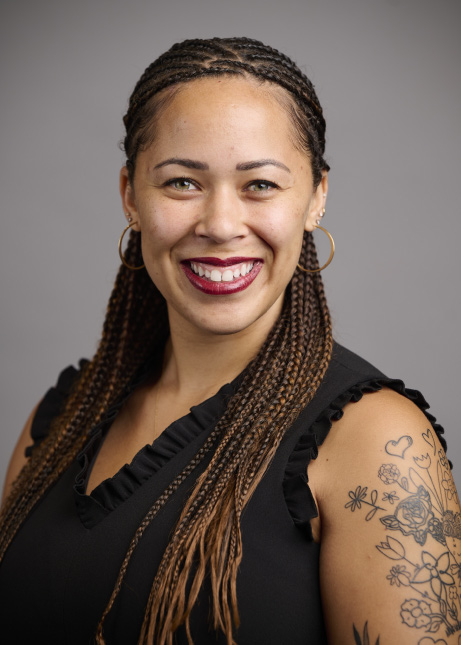
Dr. Lucas holds a Bachelor of Science degree in Child, Adult, and Family Services from Iowa State University, a Master of Education degree in Postsecondary Administration and Student Affairs from USC, a Doctorate of Education in Organizational Change and Leadership from USC, and multiple certificates in DEIB. In addition to her years of important work in higher education, Dr. Lucas brings to the position her experiences as a Black woman on the autism spectrum.
“Theresa’s personal background and identities are such an asset. I encourage her to bring her full self to work every day so that our students can connect with her around their shared experiences, as well as see her as a role model, an inspiration, and a fierce leader who is unapologetic about bringing her full self to this important work,” Dr. Negrete says. “In her short time here, she has developed deep and meaningful relationships with faculty, staff, and students, and has already created a vision for this work that will only continue to improve and become a model for our art and design peer institutions.”
One of Dr. Lucas’s first projects is the fifth annual Black Creatives Institute, which takes place this week and includes a keynote address, a series of conversations and panels, site visits, and art activations with Black creatives from across a spectrum of art and design industries. The goal of the program is to foster a sense of community among incoming Black-identified students by supporting their personal growth, identity formation, cultural development, and career development. This year’s 40 participants are staying in campus housing for the weeklong, free event.
Dr. Lucas took a moment during her busy summer to discuss her aspirations for the College and exciting plans underway for BCI.
Interview with Dr. Lucas
What attracted you to the role of Director of Diversity, Equity, Inclusion, and Belonging?
My professional experiences, academic research, and passions aligned perfectly with the mission and values of Otis College. It was really important to accept a role at an institution that was value-aligned with me, and Otis is exactly that. I also knew that being at a small college would allow me to wear multiple hats and that no two days would be the same. Otis prioritizes creativity, innovation, community, and diversity—a hard combination to find in higher education.
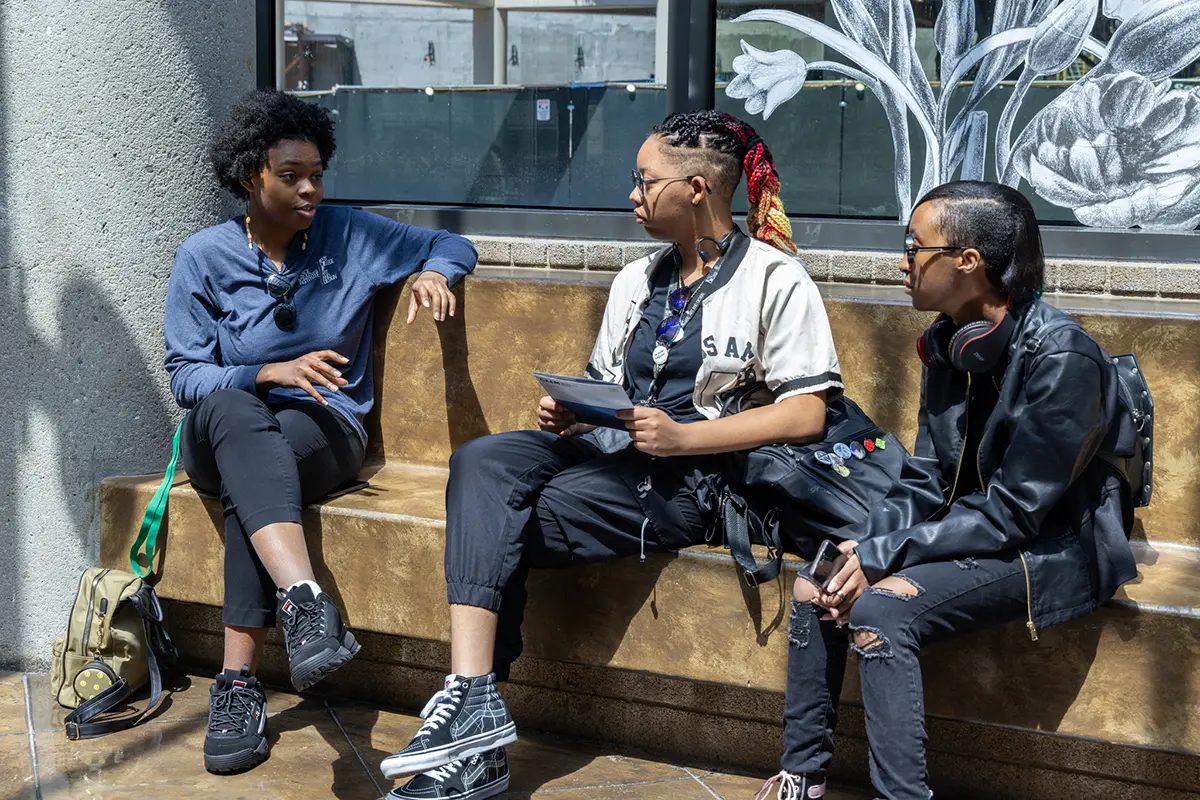
You’re open about your own neurodiversity as a Black educator who is on the autism spectrum. How does this personal experience inform your work?
My personal experiences have fueled my commitment to creating inclusive spaces where all forms of diversity and intersectionality, like being Black and autistic, are recognized and celebrated. It has also heightened my awareness of the importance of accessibility in education. I advocate for policies and practices that ensure students and staff with disabilities can thrive. This personal connection drives my passion for DEIB work and informs my approach to making systemic changes that benefit everyone. We can’t have diversity without neurodiversity.
How have you seen educational institutions better address students’ differences, and why is this so important?
In recent years, I’ve observed a positive shift in some educational institutions becoming more intentional about addressing students’ diverse needs. This includes implementing more inclusive curricula, offering support services tailored to different learning styles, and creating spaces where students can express their identities freely. Addressing these differences is crucial because it fosters a sense of belonging and ensures that all students have equitable access to opportunities. When institutions recognize and support the full spectrum of student identities, they empower students to succeed academically, socially, and personally. Not only that, but when institutions go a step further to ensure our students with diverse backgrounds see faculty and staff with similar backgrounds or experiences, it builds community and a sense of belonging, which then increases retention and persistence to graduation.
Otis College’s commitment to DEIB was included in its strategic plan in 2019. Why is it so essential to not only maintain but also continually grow DEIB strategies on campuses?
This year we are releasing a DEIB strategic plan alongside the College’s forthcoming strategic plan. I think it shows how much Otis has grown in the last five years and demonstrates that DEIB is not a one-time initiative. This work is an ongoing process that must evolve to meet the changing needs of the community. Maintaining and growing DEIB strategies ensures that the campus remains responsive to the diverse experiences of students, faculty, staff, and alumnni. As society and the challenges we face continue to change, so must our approaches to inclusion and equity. By continually advancing DEIB strategies, Otis College can ensure that we remain a leader in fostering an environment where creativity and innovation are fueled by diverse perspectives.
What goals do you have for leading the DEIB Council?
My primary goal for leading the DEIB Council is to create actionable strategies that align with Otis College’s overall mission while addressing the specific needs of our community. I plan to focus on increasing transparency in decision-making and communication—ensuring that all voices are heard and valued—and driving initiatives that promote equity and belonging. Another key goal is to continue building strong partnerships across campus, integrating DEIB efforts into every aspect of life at Otis, from academic programs to cocurricular activities.
What types of cocurricular programming are you envisioning?
I envision cocurricular programming that centers on cultural awareness, social justice,
and creative expression. I really want to see us do more to support our first-generation
students, and I’d love for Otis to receive designation as both a Hispanic-Serving Institution (HSI) and a Black-serving-institution. This year I’ve created a couple of new programming
initiatives that I’m excited about, including a celebration for National First-Generation Day (November 8), a monthly community lunch, identity-based panels co-hosted with Career
Services, and check-ins for Black faculty and staff and students who attended the
Black Creatives Institute (BCI). I’m looking forward to working alongside the DEIB
Co-Curricular Programming Committee to continue to provide high quality programming
for our Otis community with a focus on collaborative projects that allow students
to explore and express their identities through their work. My goal for all programming
is that it complements the academic experience and also builds a strong, inclusive
community where students, faculty, and staff can engage together with DEIB topics
in meaningful and transformative ways.
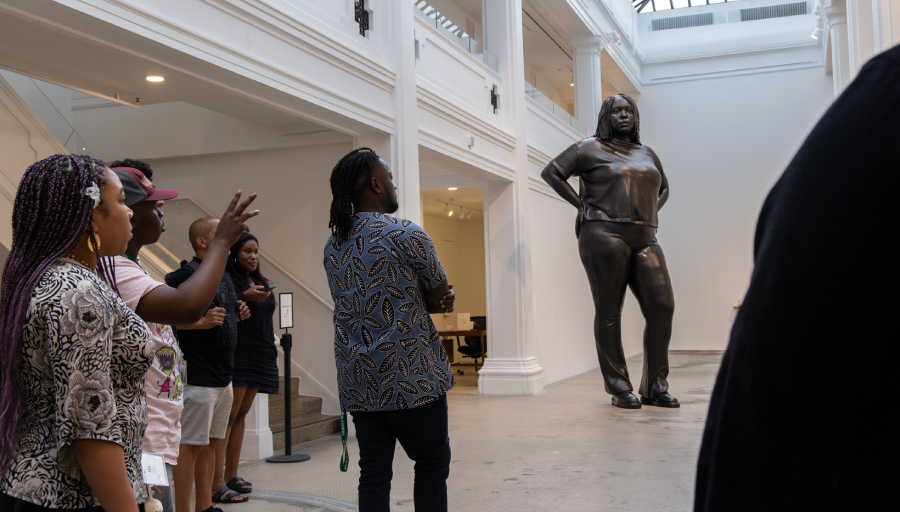
How important is it to offer DEIB training and development to faculty and staff?
DEIB training and development for faculty and staff are crucial in creating an inclusive campus culture. When faculty and staff are equipped with the knowledge and tools to address diversity, equity, inclusion, and belonging in their work, they can better support students and contribute to a more equitable learning environment. My goals are to create more spaces where faculty and staff can learn alongside each other, to increase the opportunities for asynchronous learning, and to increase micro-learning opportunities. I plan to work closely with our Teaching and Learning Center and our Chairs Council to launch a training and development series for faculty and staff this year.
What can you tell us about this year’s Black Creatives Institute?
This year’s Black Creatives Institute, the fifth year of the program, continues to build on the success of Dr. Nick Negrete’s initial launch of the program back in 2020, expanding its reach and impact. We are expecting close to 40 students, and we have two dedicated Black Creatives Peer Mentors who will work with our BCI attendees throughout their first year at Otis. We have many notable programs, including an art activation workshop with Dreamhaus L.A., co-founded by our very own alumni (Nikkolos Mohammed, ’13 BFA Fine Arts, and Mike Reesé, ’13 BFA Communication Arts); a drumboxing session focused on mindfulness and embodied work; and scheduled visits to Riot Games, BLT Communications, Southern Guild Gallery, Sole Folks, and Destination Crenshaw.
Our speakers are phenomenal: We begin our first night with Natasha DesRuisseaux from Meta, and our keynote speakers are Teran Evans, Global Head of Brand Design at Amazon Music, and his twin brother Teman Evans, Global Chief of Design at General Mills. Our closing speaker is Launi King, CEO of Creative Play. Our students will also have the unmatched opportunity to interact directly with senior leaders from AppleTV, Disney, Activision, Purpose Toys, VFILES, FIFA, Riot Games, Supervsn, and more! Students who participate in the Black Creatives Institute will gain invaluable insights into career development, creative expression, and community building, and are empowered to reach success both at Otis College and in their future careers.
What would you tell a student considering Otis College about its commitment to DEIB?
I would tell them to come visit us on campus where they’ll be able to see our commitment.
From the diversity of our student body, faculty, and staff, to the programming we
put on, to Otis’s investment in creating my new role as Director of DEIB, in addition
to Nick serving as the inaugural senior diversity officer as AVP and then VP—this
is a clear commitment with action behind it.
"Otis doesn’t just say we’re committed to DEIB, it’s seen and felt every day."
We are deeply committed to creating a diverse, equitable, and inclusive environment
where all students belong and can succeed. The College’s strategic initiatives in
DEIB are designed to support students from all backgrounds, ensuring that they have
the resources, opportunities, and community they need to thrive. At Otis, your identity
and creativity are not only welcomed but truly celebrated, and you’ll be part of a
community that values and supports your unique contributions.
Is there anything else you’d like the Otis community to know about you?
I am deeply passionate about this work, not only because of my professional background,
but also because of my personal experiences. I know what it is like to be in spaces
and at schools where I didn’t feel seen or valued. I work every day to make sure that
our students, faculty, and staff know how important they are at Otis.
"I know what it is like to be in spaces and at schools where I didn’t feel seen or valued. I work every day to make sure that our students, faculty, and staff know how important they are at Otis."
I am committed to fostering an inclusive, equitable, diverse environment at Otis College and I’m excited to collaborate with the entire community to advance our DEIB goals and create a campus culture where everyone can thrive. To be successful, it takes all of us doing our part, so I’m excited to see the Otis community come together and ensure we are truly a community of DEIB champions. Everyone belongs at Otis College.


